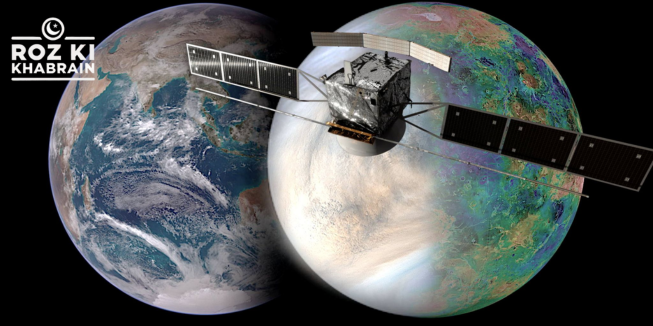Venus, often referred to as “Earth’s twin” due to its similar size and proximity to the Sun, continues to captivate scientists with its mysteries. Despite being enveloped in a thick, toxic atmosphere, extensive research over the years has revealed intriguing details about this enigmatic planet.
Key Discoveries:
- A Hostile Environment: Venus experiences extreme surface temperatures exceeding 860 degrees Fahrenheit (460 degrees Celsius), hot enough to melt lead. This intense heat is largely caused by a runaway greenhouse effect, where the planet’s dense carbon dioxide atmosphere traps heat.
- Volcanic Activity: There is significant evidence suggesting that Venus is still geologically active, with numerous volcanoes and lava flows scattered across its surface. Radar mapping has uncovered vast lava plains, pointing to past volcanic eruptions on a colossal scale.
- Retrograde Rotation: Unlike most planets, Venus rotates in the opposite direction, a phenomenon known as retrograde rotation. This results in an unusually long day, lasting around 243 Earth days.
- A Possible Ancient Ocean: Although Venus is currently dry and inhospitable, scientists speculate that it may have once hosted liquid water on its surface. Evidence such as river-like channels and high deuterium levels in its atmosphere lend credence to this theory.
Ongoing Research:
Despite the challenges presented by Venus’s harsh environment, scientists are committed to unlocking its secrets. Future missions are focused on:
- Investigating the Atmosphere: Gaining a deeper understanding of Venus’s atmosphere, including the factors behind its runaway greenhouse effect.
- Studying the Surface: Mapping the surface in greater detail, identifying active volcanic areas, and searching for evidence of past or present habitability.
- Exploring the Potential for Life: While the surface of Venus is unlikely to support life, scientists are investigating the possibility of microbial life in the planet’s cooler upper atmosphere.
As we expand our knowledge of Venus, the planet offers crucial insights into planetary evolution and the potential for life beyond Earth.




